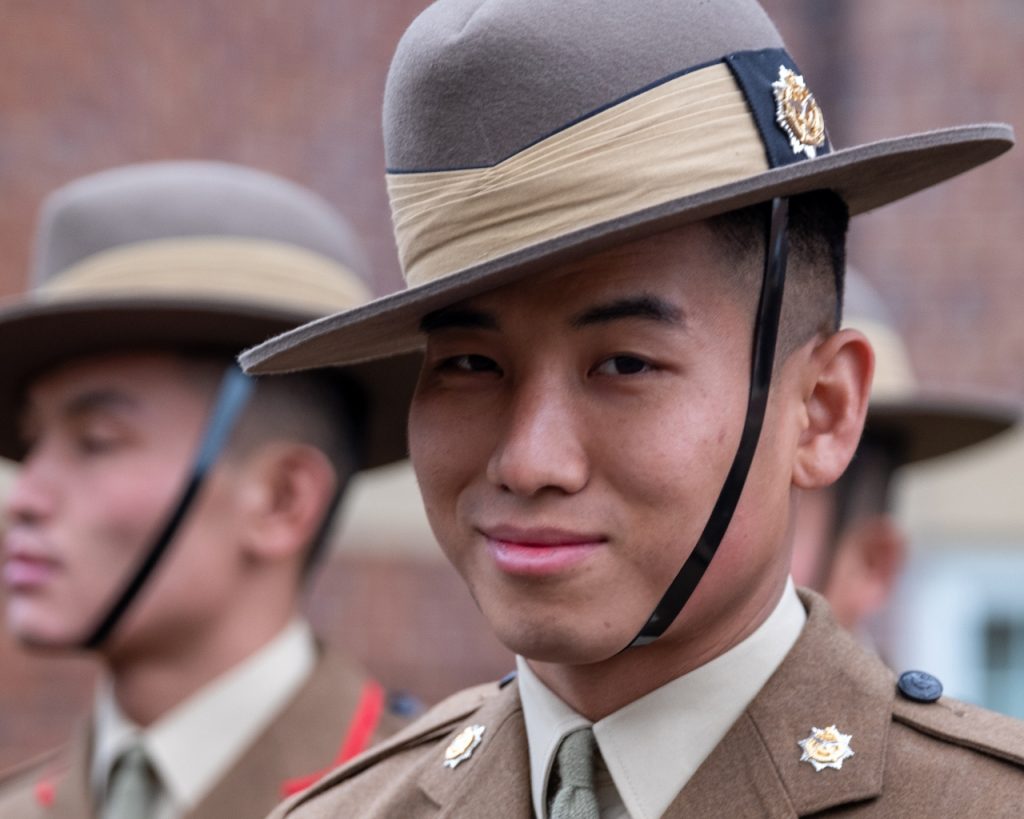
People from the Commonwealth, Ireland and Nepal who serve in the British Armed Forces face specific challenges, according to a report published by Anglia Ruskin University and funded by the Forces in Mind Trust.
The research highlighted that non-UK personnel face a number of unique challenges whilst serving, including with their immigration status, career progression, and issues with culture and belonging.
The new report emphasises the significant issues non-UK personnel face with their immigration status, resulting in challenges both during and after service. These include the need to meet the Minimum Income Requirement, the impact of visa fees and immigration costs for their family, and the impact of a lack of citizenship on their deployability.
Based on interviews with over 100 non-UK personnel, veterans and family members, the report highlights that the current immigration process is unnecessarily complex and unreasonably expensive. The report also recognises that these challenges are compounded by a lack of clear and accurate immigration information for non-UK personnel and their families.
The report therefore recommends access to one single point of contact for assistance with immigration administrative processes and automatic, fee-free citizenship for personnel for operational reasons.
Dr Nick Caddick from Anglia Ruskin University said: “The current system isn’t working. For those still serving, it’s resulting in long periods during which family members are separated – particularly those in more junior ranks and on lower salaries. For those who served for many years, and who understandably want to settle in the country they’ve served and to which their families have moved, the process is complex and costly.
“We’ve spoken to people who, because they were badly informed, had their visa applications turned down, but have never had their fees refunded. And we know there are veterans who were forced to return to their country of origin, where they struggle to access proper healthcare for mental and physical problems connected with their time in the Armed Forces. It seems unreasonable that those who served our country should face so many barriers when they wish to remain here.”
The report, Understanding and improving Non-UK service and transition in the British Armed Forces, also found that some non-UK personnel can face challenges with their career progression. Some participants felt held back in their careers, stating that they did not have the same deployment or promotion opportunities as their British-born counterparts. Some felt their qualifications and skills were ignored, and they were assigned more junior, and sometimes less desirable, roles. Some said they felt they were held to a higher standard than UK colleagues.
The report suggests that a lack of opportunity and career progression is due partly to formal policy and visa-related barriers for people without UK citizenship. However, some of those who participated raised concerns about bias and discrimination.
The report highlights issues with cultural differences, exclusion, and unconscious bias, with participants reporting multiple forms of racism during and after serving in the Armed Forces. Participants as a whole believed that there had been improvements in creating a more inclusive working environment, but that progress has been slow and that greater effort and action was required to tackle discrimination and bias.
Michelle Alston, Chief Executive of Forces in Mind Trust, said: “Understanding the unique challenges faced by non-UK personnel, veterans and their families is key to ensuring they are provided with the support they deserve. The majority of those who took part in this research spoke of their pride at being part of the British Armed Forces and were grateful for the opportunities it provided.
“However, the research highlights the unique disadvantages they face, including significant immigration challenges and the cost of exorbitant fees to become a citizen of the country they served to protect. Whilst most were participants were positive that progress was being made, the pace of change is too slow and more needs to be done to combat the disadvantage non-UK Service personnel, veterans and families face.”

